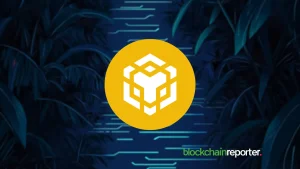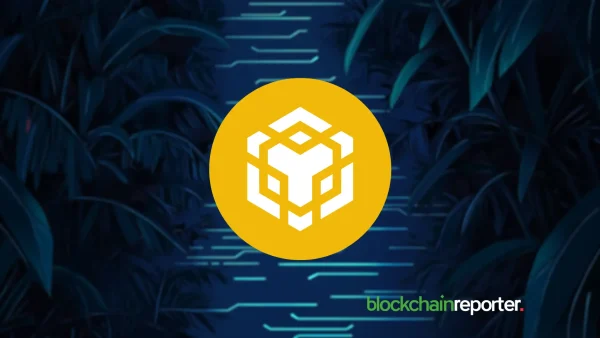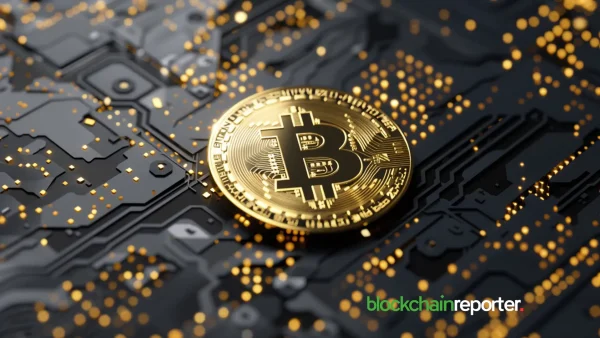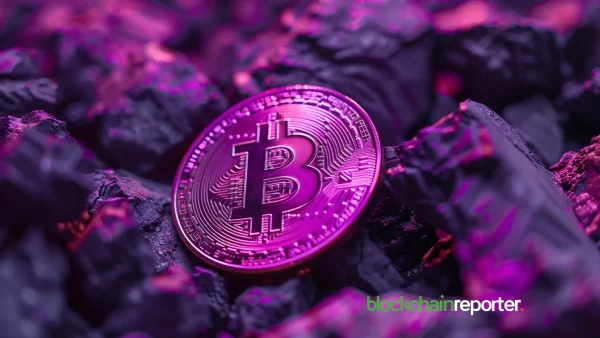
Originally introduced to alleviate some of the risks associated with the volatility of cryptocurrencies, crypto derivatives have since become one of the most sought-after segments of the blockchain ecosystem.
Markets for crypto derivatives – contractual agreements between buyers and sellers on the future price of digital assets – have flourished in recent years, primarily due to the emergence of several crypto derivatives exchanges.
There are so many options to choose from, especially for multi-feature crypto derivatives exchanges, that most users often find it overwhelming. To simplify this reality and help users, both new and experienced alike, make informed decisions, here’s our pick for the top five crypto derivatives exchanges of 2022.
AAX Futures
As an institutional-grade trading platform that serves all types of users, AAX is among the largest (and most dominant) crypto exchanges across the Asia-Pacific region.
Atom Assets Exchange (AAX) is a centralized exchange and the first crypto exchange powered by LSEG technology. The same technology powers over 40 different financial markets like the London Stock Exchange, Johannesburg Stock Exchange, Oslo stock exchange, Borsa Italiana, and the Singapore Exchange. Additionally, it is the first crypto exchange to join the London Stock Exchange Group’s Partner Platform.
AAX was launched in 2019 and offers a suite of crypto trading services, including spot trading, futures contracts, DeFi, P2P trading, settled contracts, and much more. When it comes to futures contracts, AAX is among the handful of platforms that provide as much as 100:1 leverage and no expiry limits. On top of this, the platform has a straightforward fee structure, with 0.02% to 0.04% maker and taker fees for all futures trading options.
The most popular crypto derivatives products on AAX include BTC-Settled Inverse Contract and USDT-Settled Vanilla Contract, which are European-style “vanilla” options trading contracts, settled in USDT. In addition, AAX also offers USDT-Settled contracts for an array of cryptocurrencies like BTC, LINK, MATIC, SHIB, DOGE, XRP, ADA, SOL, BCH, and more.
KuCoin Futures
Although it recently expanded into the derivatives market, KuCoin has positioned itself as one of the fastest-growing crypto derivatives exchanges through its recently-launched KuMEX Derivatives Trading Platform.
Singapore-based KuMEX (KuCoin Mercantile Exchange) was launched in 2019 as a derivatives exchange focusing on BTC derivatives trading, officially backed by KuCoin. There are two variations of the KuMEX platform: Lite and Pro – the former for new users who are just beginning their derivatives trading journey and the latter for experienced traders.
Maker and taker fees are part of both perpetual and delivery contracts on KuCoin, but how the platform charges the fee is a little different for each. KuCoin charges a 0.06% fee to the taker and a 0.02% fee to the market-maker for both perpetual and delivery contracts. However, the funding rate is different for USDT-margined contracts and COIN-margined contracts. There is also no settlement fee for perpetual contracts. Additionally, delivery contracts do not have a funding rate. Instead, there is a 0.025% settlement fee. KuMEX also charges users 0.0005 BTC for withdrawals, much lower than the industry average of 0.000812 BTC.
Gate.io Futures
Featuring a massive selection of cryptocurrencies and trading products, Gate.io is another popular platform that offers a good selection of crypto derivatives settled in USDT and BTC.
Like most exchanges, Gate.io is known for its low fees and ease of use. It follows the maker and taker fee model, with the spot trading fee set at 0.2% per transaction. This fee changes as a user’s transaction volume increases, and users are also eligible for further discounts by paying the required fee with the platform-native GT (Gate.io) token.
Gate.io currently offers fixed-maturity and perpetual trading options. The perpetual futures contracts have no expiry date and are available in three options: USDT-Margin, USD-Margin, and BTC-Margin. That said, the fee structure for perpetual contract trades is completely different. Gate.io aims to incentivize market-makers with a negative maker fee of -0.025% (effectively a payment) and charges a 0.075% taker fee.
Besides these derivative offerings, Gate.io supports Delivery trading – effectively futures contracts that are automatically settled at expiration time, and no funding payment is either received or paid. At present, Gate.io offers two types of delivery trading options: U Margined Delivery and BTC Margined Delivery, while another upcoming option “Delivery Contract” is currently being tested. Finally, the platform also offers standard European-style options trading with put and call options for different strike prices and expiry dates.
Huobi Futures
Huobi is another heavyweight exchange that offers a wide range of crypto trading products, including spot trading, margin and futures trading, OTC trading, staking, and more. It is among the largest global exchanges, offering professional trading bots.
Due to the surge in demand for crypto derivatives, Huobi rebranded its derivatives exchange to Huobi Futures in 2020. Designed to make options trading more intuitive and accessible for new traders, Huobi Futures offers futures and perpetual swap instruments, leverage up to 20:1 for futures, and as much as 125:1 on swap instruments.
Since the rebranding, Huobi Futures has positioned itself as a promising one-stop derivatives platform, offering coin-margined (Coin-M) contracts and USDT-margined (USDT-M) contracts. All Coin-M futures contracts come with expiration dates, but users can choose between weekly, bi-weekly, quarterly, and bi-quarterly futures. Then there are the USDT-M Contracts (USDT-margined contracts), which use the stablecoin USDT as the margin. However, the platform’s Coin-M Swaps (coin-margined swaps) have no expiration date. Users can hold them for as long as they want, but the profit or loss is settled every 8 hours.
Like every exchange highlighted so far, Huobi Futures also follows the maker-taker fee model, which varies based on whether the user selects future trading or swap trading. The standard maker fee is 0.02%, and the taker fee is 0.03%. For perpetual swaps, Huobi Futures charges a maker fee of 0.02% and a taker fee of 0.04% for all crypto pairs. Furthermore, Bitcoin futures include a delivery fee of 0.015%, and other future products have a delivery fee of 0.05%.
Crypto.com Exchange Futures
Founded in 2016, Crypto.com offers an expansive range of products and services, including crypto-powered Visa cards, spot trading, NFTs, margin trading, crypto loans, DeFi, and derivatives trading, to name a few.
The platform ventured into the derivatives market in early 2021 following the launch of its derivative exchange. As part of its derivatives trading platform, Crypto.com offers perpetual and futures trading options for a wide range of cryptocurrencies alongside 100:1 leverage.
Compared to other derivatives exchanges, Crypto.com supports an enormous selection of perpetual contracts for a wide selection of tokens. The platform primarily employs USDC as collateral, and its perpetual contracts don’t have any position expiry dates.
Trading fees for both perpetual and futures contracts follow the maker-taker fee model, whereby the maker fee ranges between 0% to 0.05%, and the taker fee ranges between 0.015% to 0.07% depending on the user’s trading volume and trading level. However, users also have the option to save much of these fees by using the platform-native CRO token.









